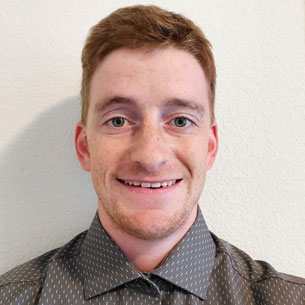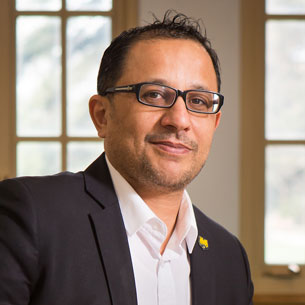Student Research Highlight: September 2021
The following doctoral students in the Sport and Exercise Science program, working with David Hydock, Ph.D., recently completed work characterizing the effect of creatine supplementation in managing Doxorubicin (DOX)-induced muscle fatigue.
This work was funded by the American Cancer Society (“Creatine Supplementation in Managing Doxorubicin-Induced Muscle Fatigue,” American Cancer Society, Pilot and Exploratory Projects in Palliative Care of Their Families).
Raquel Busekrus
Raquel is investigating the role that creatine plays in minimizing Dox-induced toxicity in the kidney.
Born and raised in Brazil, Raquel Busekrus moved to the U.S. after graduating with a bachelor's degree in Biological Science. Raquel then received a master’s degree in Exercise Physiology from UNC, where she is now a fifth-year Ph.D. student in the School of Sport and Exercise Science.
Raquel's doctoral research focuses on the effects of creatine supplementation in renal membrane transporters associated with the transport and excretion of doxorubicin, a widely used chemotherapy drug. Creatine may be an interesting adjunct therapy for cancer patients undergoing chemotherapy treatment to mitigate drug toxicity in cardiac and skeletal muscle, as well as renal tissue.
While working on her dissertation, Raquel currently works at a diagnostics laboratory performing genotyping of livestock samples. She hopes to soon get back to physiology research and build a career in the pre-clinical side of pharmaceutical and biotechnology research.
Outside of research Raquel likes reading murder/mystery stories, listening to podcasts and watching police shows on TV. She enjoys the outdoors, hiking and skiing, but takes weight training as her main form of exercising.
Brandon Jones
Brandon's research involves studying the anticancer effect of Dox with creatine supplementation.
Brandon Jones is a fourth year Ph.D. student in the School of Sport and Exercise Science. His research focuses on the effects of creatine supplementation on cancer cell growth and chemotherapy (doxorubicin) sensitivity. Creatine may be beneficial to cancer patients undergoing chemotherapy treatment to mitigate off target toxicity in cardiac and skeletal muscle.
Brandon’s research focuses on the effect of creatine on cancer cells. Researchers
need to know the effect of creatine on cancer cell growth and chemotherapy interactions
to ensure dietary creatine supplementation is safe for cancer patients.
Brandon originates from Wisconsin and was drawn to the Hydock lab in Colorado for
his passion for skeletal muscle physiology. Outside of research he enjoys rock climbing,
backpacking and weight training.
Salah Sharif
Salah is exploring how Dox and creatine affect metabolism in cardiac and skeletal muscle.
Salaheddin Sharif is a Ph.D. candidate in Exercise Physiology in the School of Sports and Exercise Sciences.
Sharif holds a Bachelor of Medicine (M.B.CH. B) (equivalent to an M.D. in the United States) from Arab Medical University, Benghazi, Libya. Sharif graduated with a Master of Science in Exercise Physiology from West Virginia University, where he worked in the human performance lab under the supervision of Stephen Alway, Ph.D.
His research focuses mainly on exploring Doxorubicin-induced cardiotoxicity and myotoxicity mechanisms and how exercise and nutritional interventions alleviate Doxorubicin-induced toxicity. Sharif recently accepted a research fellow position at Mayo Clinic in Rochester, Minnesota.




